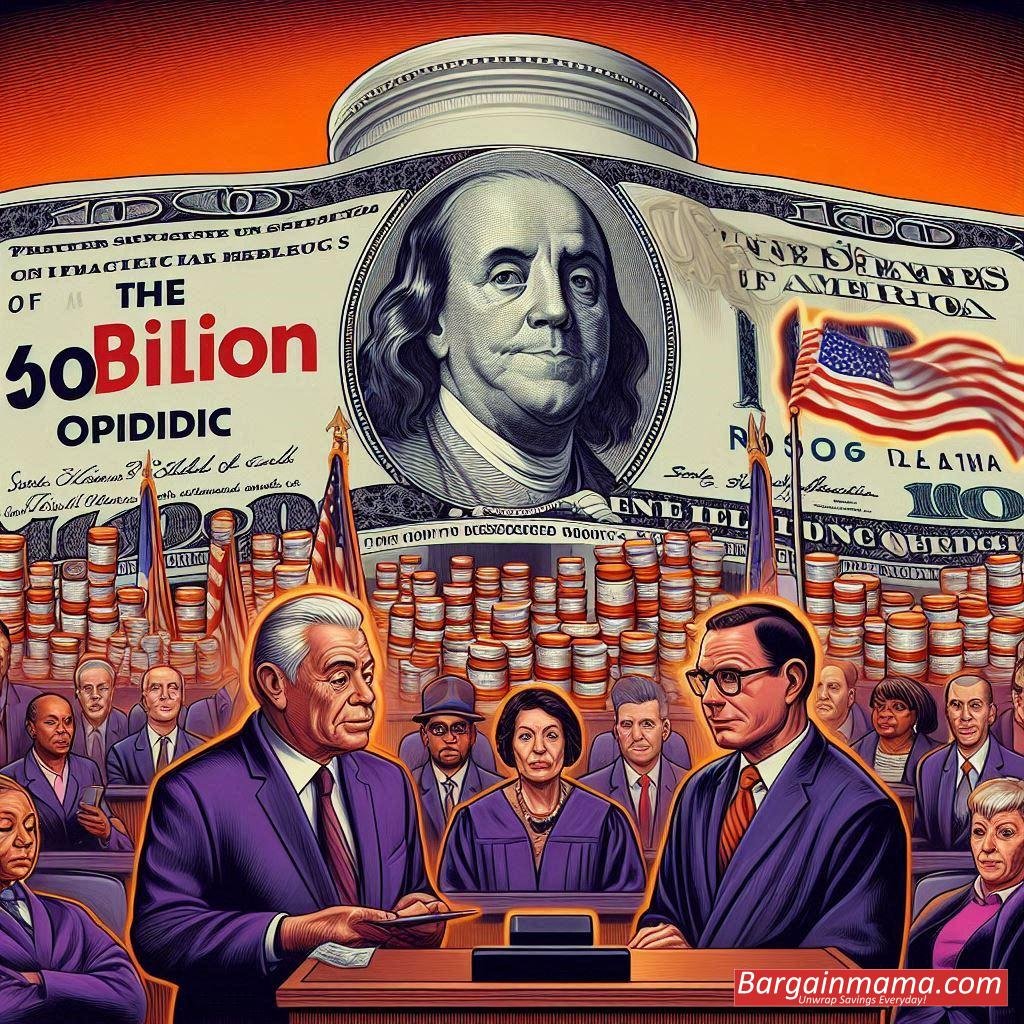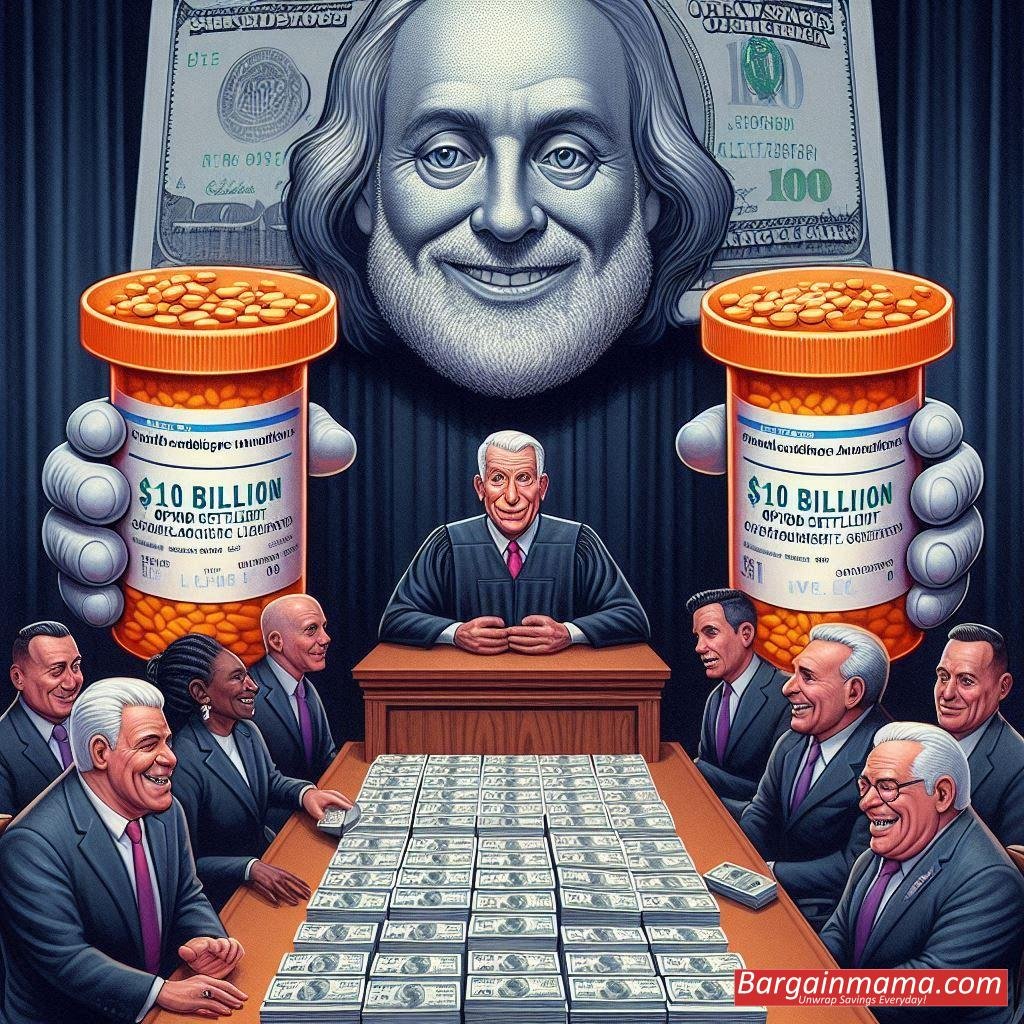The Supreme Court reversed a $10 billion settlement meant to combat the country’s opioid problem on Thursday in a historic ruling. The settlement includes a clause that released the Purdue Pharma owners, the Sackler family, from further culpability. The deal had been intended to compensate victims, hospitals, states, and other impacted parties. The court decided, by a slim 5-4 majority, that a bankruptcy judge has the jurisdiction to accept a settlement this extensive that provides rights to non-bankrupt parties.

“Our only proper task is to interpret and apply the law as we find it,” Justice Neil M. Gorsuch wrote in the majority opinion. “Nothing in present law authorizes the Sackler discharge.” He stressed that a release and injunction that essentially dismisses claims against a non-debtor without the permission of the affected claimants is not permissible under the present bankruptcy legislation when it comes to Chapter 11 restructuring plans.
Justices Clarence Thomas, Samuel A. Alito Jr., Amy Coney Barrett, and Ketanji Brown Jackson joined Gorsuch in the decision. Chief Justice John G. Roberts Jr., Justices Sonia Sotomayor and Elena Kagan, as well as Justice Brett M. Kavanaugh, wrote the dissenting opinion, which disapproved of the majority decision. “Today’s decision is wrong on the law and devastating for over 100,000 opioid victims and their families,” said Kavanaugh. The court’s ruling modifies the U.S. Bankruptcy Code and limits the bankruptcy courts’ long-standing ability to provide just compensation to victims of mass torts.”
The settlement’s effects on the opioid problem and its potential ramifications for other large litigation, such as those involving the Boy Scouts of America and many Catholic dioceses, have drawn considerable attention. In 2019, Purdue Pharma declared bankruptcy owing to the numerous litigation it was facing for its promotion of OxyContin as a non-addictive painkiller. Purdue’s aggressive marketing techniques are said to have contributed to the opioid crisis, which has claimed over half a million lives since the mid-1990s.
About $11 billion had been given by Purdue Pharma to the Sackler family and their offshore accounts in the ten years before the bankruptcy, however, their attorneys said that more than half of that sum had been paid in taxes. OxyContin caused enormous harm and liabilities; ongoing lawsuits against Purdue Pharma and the Sackler family are expected to total more than $40 trillion.

A group of creditors, comprising hospitals, victims, municipal and state governments, and tribal groups, had worked out a deal that is anticipated to disburse around $10 billion, of which the Sacklers donated $6 billion. A bankruptcy court accepted the deal in 2021, calling it the “only reasonably conceivable” means of resolving the numerous cases reasonably. The judge pointed out that the firm would be dissolved and the majority of creditors would receive nothing if it weren’t for the Sacklers’ contribution.
The bankruptcy trustee for the Biden administration was against the arrangement, even though over 95% of creditors—including all 50 states—approved of it. Since the Sacklers were not insolvent, the trustee contended, they shouldn’t be entitled to the safeguards provided by a bankruptcy settlement. The Supreme Court heard the case of Harrington v. Purdue Pharma and postponed the settlement last year to hear the trustee’s side of the story.
This ruling underscores the difficulties in applying bankruptcy law to settle mass-tort claims and represents a major turning point in the continuing legal fights surrounding the opioid crisis. The decision makes it quite evident that non-debtors cannot request protection under bankruptcy agreements unless the impacted claimants specifically approve. The $10 billion settlement and its wider ramifications for victims of the opioid crisis are still up in the air as the country struggles to process this decision.



